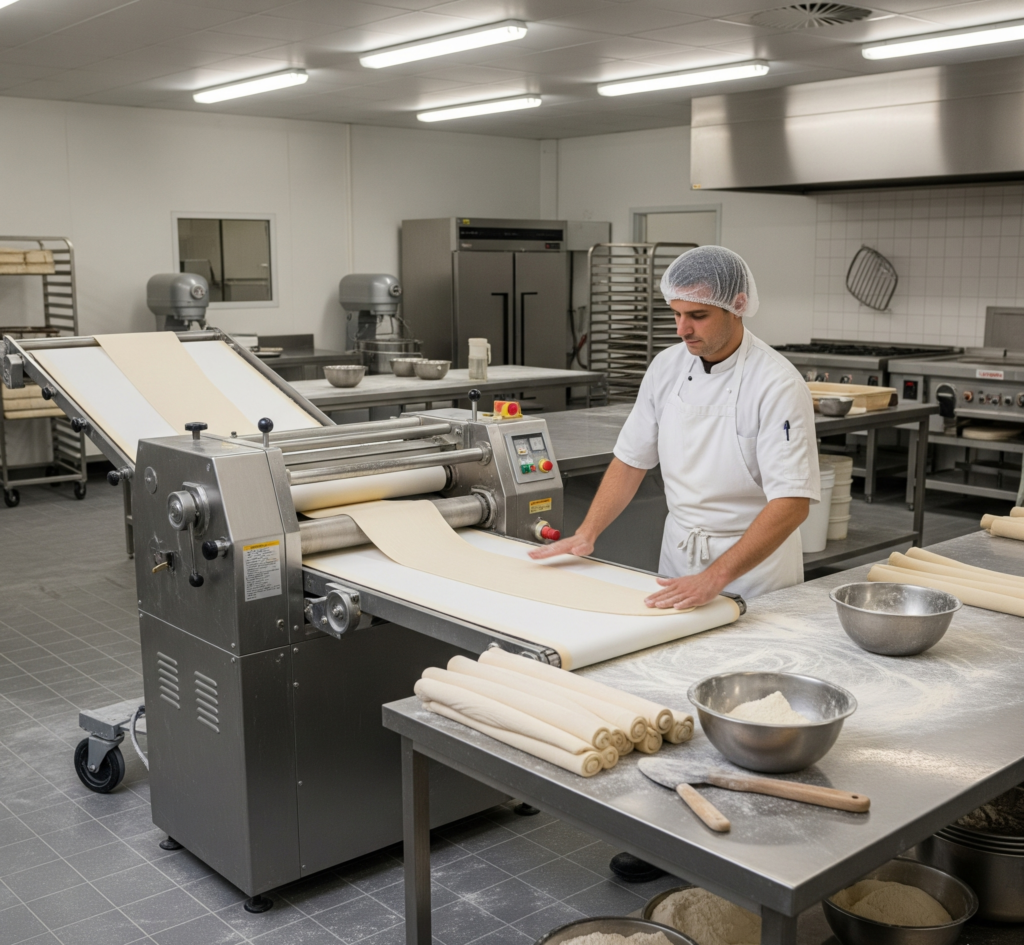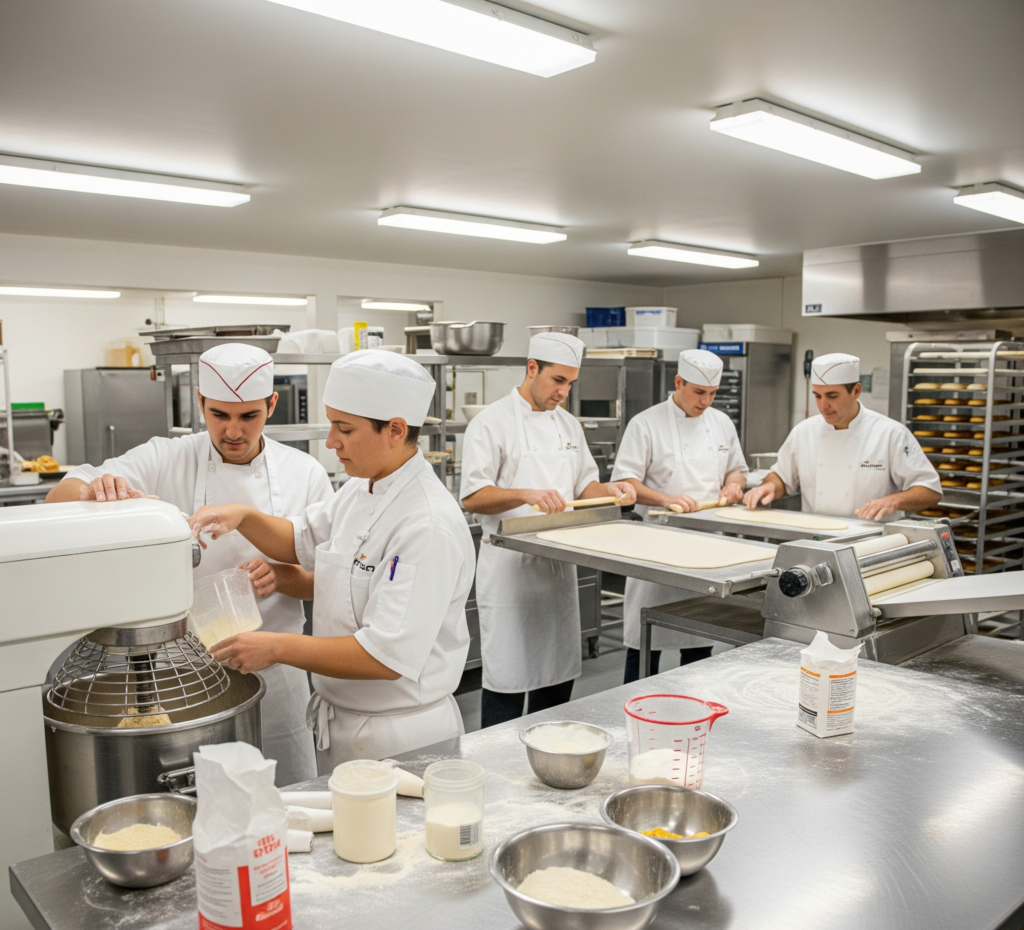Do You Need a Dough Sheeter If You Already Have a Mixer?

When setting up a commercial kitchen or bakery, one of the common questions chefs and business owners face is: If I already have a dough mixer, do I really need a dough sheeter too? Both machines play an important role in dough preparation, but they serve different purposes. Let’s break it down.
What a Dough Mixer Does
Think of your mixer as the heart of your bakery’s production. Its primary job is to take raw ingredients and transform them into a cohesive, well-developed dough. With the help of a dough hook, it kneads and works the gluten, creating the elasticity and structure necessary for everything from a rustic sourdough loaf to a batch of brioche. A mixer saves you from the labor-intensive process of hand-kneading, ensuring your dough is perfectly aerated and ready for the next step.+-
However, a mixer’s work ends once the dough is kneaded. It can’t shape, thin, or flatten that dough into a consistent sheet. This is where the second machine comes in.
What a Dough Sheeter Does

A dough sheeter is designed for one task: to take a bulk of dough and roll it out to an exact, uniform thickness. This is not just about making the dough flat; it’s about achieving perfection that’s nearly impossible to replicate by hand. This machine is crucial for any recipe that relies on lamination, which is the process of creating thin, alternating layers of dough and fat.
Consider croissants and puff pastry. Their signature flakiness comes from hundreds of ultra-thin layers created by precisely folding and rolling dough and butter. A sheeter handles this delicate process flawlessly, reducing the time and physical effort required while guaranteeing consistent layers. Hand-rolling can easily lead to uneven spots, torn dough, and overworked gluten, resulting in a tough, chewy product rather than a light and airy one.
Beyond pastries, a sheeter is invaluable for things like pasta dough, pizza crusts, and phyllo dough, where a uniform thickness is essential for consistent cooking and a professional finish.
Do You Really Need Both?
The answer depends on your business:
- For Small Cafés or Home Bakers: If your production is limited and you can manage with hand-rolling, a mixer alone may be enough.
- For Busy Restaurants or Bakeries: If you prepare large quantities of dough regularly, a sheeter saves time, reduces labor, and ensures consistency. Hand-rolling can be inconsistent and physically demanding.
- For Specialized Products: For laminated doughs like croissants or puff pastries, a sheeter is almost essential to maintain even layers.
Benefits of Having Both

- Saves significant prep time during rush hours.
- Ensures consistent product quality and thickness.
- Reduces staff fatigue and errors.
- Speeds up production for high-demand kitchens.
Final Thoughts
While a dough mixer is indispensable for preparing dough, a dough sheeter is equally valuable for shaping it. If your business focuses on pizzas, pastries, or large-scale production, investing in both will improve efficiency, consistency, and product quality. However, if your needs are small-scale, a mixer alone may be sufficient.
For the best quality equipment for your business, Muskan Equipment Co. sells dough sheeters and mixers of any type required.
